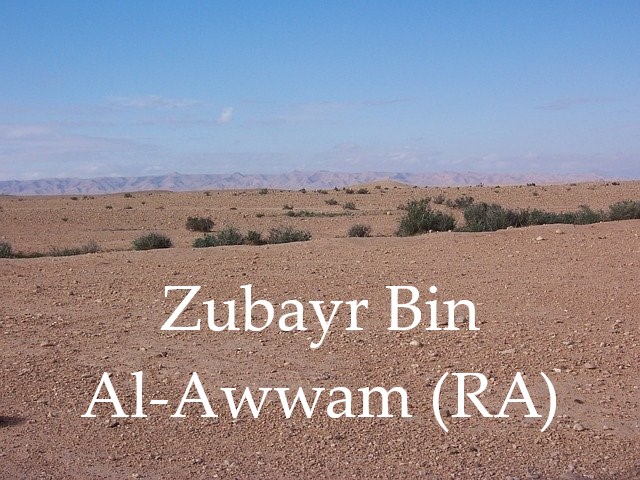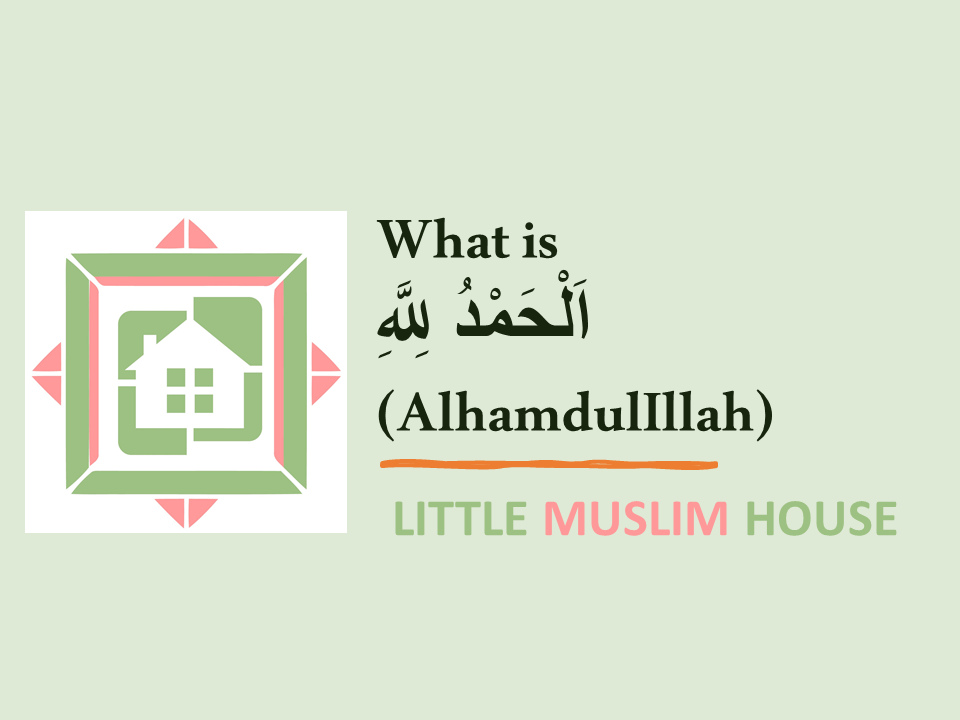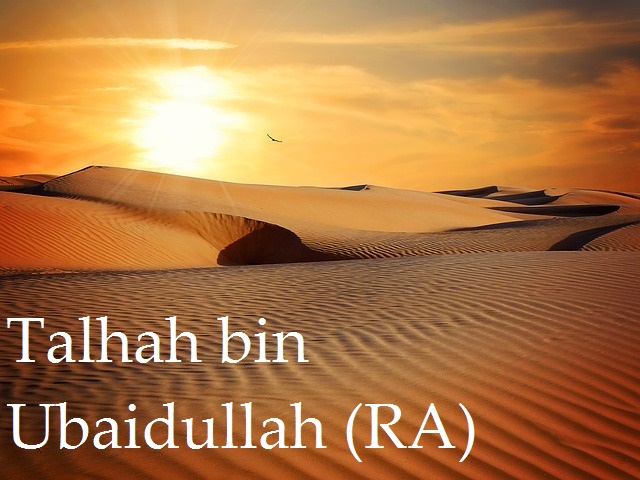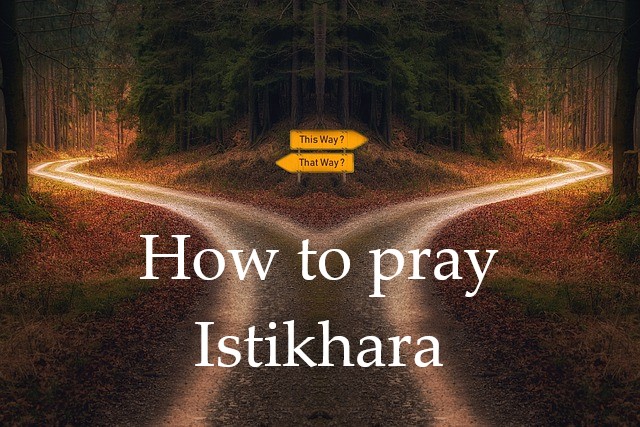Zubayr ibn al-Awam (RA) was regarded as the disciple of the Prophet (PBUH) for his immeasurable feats of courage, selflessness and unfaltering support he demonstrated in the service of Islam – an honor that none before him received. He was also among the ten noble companions of Rasulullah (PBUH) to be promised paradise (Ashara Mubashara).
The Messenger of Allah (PBUH) said: “Abu Bakr is in Paradise, Umar is in Paradise, Uthman is in Paradise, Ali is in Paradise, Talhah is in Paradise, Az-Zubayr is in Paradise, Abdur-Rahman Bin Awf is in Paradise, Saad Bin Abi Waqqas is in Paradise, Saeed Bin Zaid is in Paradise, and Abu Ubaidah Bin Al-Jarrah is in Paradise.” [At- Tirmidhi]
Lineage
Zubayr ibn al-Awwam was the son of Safiyya bint Abdul Mutallib(RA) and Awwam ibn Khuwaylid.
He is related to Rasulullah (PBUH) in three separate ways.
- Through his father, Zubayr (RA) and Muhammad (PBUH) share a common ancestor in the fifth generation named Qusayy
- Through his mother, both Rasulullah (PBUH) and Zubayr (RA) are first cousins as Safiyya (RA) is the paternal aunt of Prophet (PBUH) and she was the full sister of Hamza (RA)
- Lastly, Khadija bint Khuwaylid (RA), the beloved wife of the Messenger (PBUH), is the paternal aunt of Zubayr (RA), as Khadija (RA) was the sister of Zubayir’s (RA) father – Awwam ibn Khuwaylid
Physical Appearance
Zubayr (RA) was a lean but muscular young man whose most notable characteristic was his height—he was reported to be much taller than average such that when he rode a horse, his feet could reach the ground. He was also reported to be darker in complexion and maintained a sparse beard i.e. not very thick.
Early Life
Having lost his father before his birth or while he was just a toddler, Zubayr ibn al-Awwam (RA) was raised by his mother Safiyya (RA) who ensured that he had a tough upbringing. It was reported that while Zubayr (RA) was a child, Safiyya (RA) was reprimanding him for a wrongdoing by beating him. When Zubayr’s (RA) paternal uncle, Nawfal ibn Khuwailid, heard his nephew’s beatings, he intervened asking Safiyya (RA) to cease the harsh punishment for it seemed that she hated her own child. But Safiyya (RA) replied, “whoever says I hate him is a liar. I am hitting him so that he may respond in battle; and he may vanquish the army and come back with booty so that his money may not be taken from him”.
Conversion to Islam & Oppression at the Hands of His Uncle
Zubayr (RA) converted to Islam at a very young age (in his teens). He was among the first five converts to embrace Islam under the guidance of Abu Bakr As-Siddiq (RA). Zubayr (RA) was a regular attendee of Darul-Arqam, a house where the early converts gathered in secret to pray and learn about Islam.
When news of the religion of Muhammad (PBUH) spread, the new converts were victim to great persecution. Zubayr (RA) faced severe abuse at the hands of his uncle, Nawfal Ibn Khuwailid – the same uncle that was earlier criticizing his mother for being too harsh with him. It is reported that Nawfal used to place his nephew in a room with no ventilation while lighting a fire outside causing clouds of smoke to fill up the room suffocating Zubayr (RA). Although Nawfal assumed this would force his nephew to renounce his faith, Zubayr (RA) was resistant.
Zubayr ibn al-Awwam’s (RA) devotion towards Islam and love for Allah’s Apostle (PBUH) was apparent in many occasions. During the initial years of Islam, a rumor was spread that the Prophet (PBUH) was either killed or abducted. Zubayr (RA) who was enraged at hearing this rumor, carried his sword through the streets of Makkah in search of RasulUllah (PBUH). When he did eventually locate the Prophet (PBUH), Zubayr (RA) informed him that he had heard that the Prophet (PBUH) was abducted or killed. When RasulUllah (PBUH) questioned him as to what he would have done with his sword, Zubayr (RA) responded, “I would have killed him back”. Zubayr (RA) is considered the first Muslim to unsheathe a sword in the defense of Islam.


Migration to Abyssinia
In light of the increased oppression they faced in Makkah, few Muslims including Zubayr (RA) migrated to Abyssinia where they were given shelter by Najashi (the Negus), the King of Abyssinia at the time. Before long, Najashi was overthrown by his nephew and a civil war ensued. The Muslims who grew restless fearing for their lives at the hands of the new king, decided to find out who was winning the battle so that they may leave should the Najashi lose – the Najashi had prepared a ship for their escape for the same.
Zubayr (RA) was the first to bravely volunteer to take on this task. He swam up the Nile to the location of the battle assisted by an inflated waterskin as a flotation device. Upon reaching the site of the battle, he observed the events and swam his way back to the Muslims with glad tidings that the Najashi was victorious.
Zubayr (RA) remained in Abyssinia for a brief period and returned to Makkah prior to the Hijrah.
The Hijra and His Marriage to Asma bint Abu Bakr (RA)
Upon his return to Makkah Zubayr ibn al-Awwam married Asma (RA), the daughter of Abu Bakr (RA).
When the time for migration arrived, Asma (RA) was at her final trimester of her pregnancy. She gave birth during Hijrah to their first child, Abdallah ibn Zubayr (RA). His birth was a time of celebration as he was the first Muslim baby to be born in Madinah; and to the Prophet (PBUH) and Muslims, his birth signified a good sign for the Muslims of Madinah.
Zubayr’s (RA) Role in the Battle of Badr
Zubayr (RA) was a great warrior who took part in all battles alongside the Prophet (PBUH). He fought valiantly on the field of Badr such that the 5000 angels that were sent by Allah to assist His followers were donned in yellow turbans impersonating Zubayr (RA) who was sporting a yellow turban on that day. He suffered severe injuries on this day.
Zubayr’s (RA) Role in the Battle of Uhud
When the fighting grew intense on the day of Uhud, Allah’s Apostle (PBUH) offered his sword to his companions in effort to boost their morale saying, “Who is going to take this sword from me?” Az-Zubayr (RA), being the first to volunteer said, “I will take it from you.” The Prophet (PBUH) repeated himself once again saying, “Who will take it from me?” Then, Abu Dujana (RA) arose saying, “I will take it.” Handing it to him, the Prophet (PBUH) said, “Give it its due.” Upon questioning what that meant, RasulUllah (PBUH) said, “Its due is that you use it until it breaks and you cannot use it anymore.” Zubayr who felt a pang of (positive) jealousy at not being given the sword, followed Abu Dujana to observe him in battle. Narrations of Az-Zubayr reveal that, upon witnessing the bravery, skill & fierceness of Abu Dujana on the battlefield wielding Prophet Muhammad’s (PBUH) sword, he (RA) realized that the Prophet (PBUH) had chosen the right individual.
After the defeat of the Muslims on the battle of Uhud and upon their return home, Prophet Muhammad (PBUH) feared another attack from the Quraysh. When he called his army to gather again, Abu Bakr (RA) and Zubayr (RA), despite their injuries and fatigue, were the first to respond to the Prophet’s (PBUH) call. But, by the grace of Allah, the Quraysh did not return for an attack. Allah revealed the following verses in response to the loyalty of these companions:
الذين استجابوا لله والرسول من بعد ما أصابهم القرح ۚ للذين أحسنوا منهم واتقوا أجر عظيم
“As for those (believers) who responded to the call of Allah and His Messenger after their injury, those of them who did good and were mindful of Allah will have a great reward.” [ Al-Imran 03:172]
فانقلبوا بنعمة من الله وفضل لم يمسسهم سوء واتبعوا رضوان الله ۗ والله ذو فضل عظيم
“So, they returned with bounty from Allah, and grace, with no evil having even touched them, and submitted to the pleasure of Allah. Allah is the Lord of great bounty.” [ Al-Imran 03:174]
Zubayr’s (RA) Role in the Battle of Khandaq (Trench)
The highest honor that Zubayr ibn al-Awwam received in his life was attributed to him during the battle of Trench. For weeks, the Quraysh along with other tribes had circulated Madinah with a large army. As the Muslims grew vulnerable with supplies dwindling, they heard a rumor that the tribe Banu Qurayza within Madinah were preparing to attack the Muslims from within.
That night, Prophet (PBUH) gathered his Sahabah and asked, “Who would go to the fortress of Banu Qurayza and verify if they were indeed rebelling?” Zubayr (RA) immediately arose and said, “I will”. The Prophet (PBUH) asked those gathered once again, “Who will go?”, to which none responded while Zubayr (RA) once again volunteered. For the third time, Prophet (PBUH) put forward the question, to which nobody but Zubayr (RA) responded saying, “I will”. Allah’s Apostle then said, “Every prophet used to have a Hawari (i.e. disciple), and my Hawari is Az-Zubayr bin al-Awwam.” [Sunan Ibn Majah]
Zubayr (RA) reported back from his assignment carrying news that the rumors were indeed true and Banu Qurayza had gathered up their sheep (into the fortress) and were saddling their horses. RasulUllah (PBUH) then said to him, “Let my father and mother be sacrificed for you.” [Bukhari]
The Messenger (PBUH) had said this to only one other person beside Zubayr Ibn al-Awwam (RA) and that was Sa’d ibn Abi Waqqas (RA).
Zubayr (RA) in the Battle of Khaybar
In the battle of Khaybar, it was reported that there was a reputed fierce soldier named Yasir among the enemy ranks who resembled a giant. Having killed a number of Muslims that crossed his path, the soldier kept challenging Muslims to come forward and fight him. Eventually, when no Muslim dared to cross his path, Zubayr (RA) took up his challenge.
Safiyya (RA), the mother of Zubayr (RA), who was on the battlefield at the witnessed this, & cried to RasulUllah (PBUH) pleading him to do something fearing that her son would be killed in the encounter. But, the Prophet (PBUH) reassured her that Zubayr (RA) would not be martyred, instead Yasir would be killed at the hands of her son. As predicted Zubayr (RA) slayed Yasir.
It is said that Zubayr (RA) struck Yasir with such a blow that he was cut in half, splitting the saddle the he was sitting on. Afterwards, some of the Muslims commented on how sharp his sword must have been. Zubayr (RA) replied that it was not the sharpness of the sword, rather the strength of the arm that wielded it that dealt the blow.
The Conquest of Makkah
During the conquest of Makkah, RasulUllah (PBUH) received information from Jibril (AS) that a slave lady was secretly carrying a letter to the Quraysh with information regarding the plans of the Muslims to attack Makkah. RasulUllah (PBUH) dispatched Ali (RA) and Al-Zubayr (RA) to intercept her.
Having intercepted her en route, they searched her belongings looking for the letter. When they could not find the letter, they realized she must have concealed it on her person. So they coerced her into revealing it. She then produced the letter, which she had hidden under the braids of her hair. Ali & Al-Zubayr (RA) brought it back to Muhammad, confident that the Muslims would now take Makkah by surprise.
During the march into Makkah, the Muslim army was divided into four divisions and bearing three banners. Each division would enter Makkah through one of four entrances into the city. Al-Zubayr (RA) was one of the three flagbearers and led one of the divisions into the sacred city. No major fighting occurred, only minor skirmishes outside the outskirts of the city.
The Battle of Yarmuk
Following the death of the RasulUllah (PBUH), being one of the senior-most companions, Zubayr (RA) was actively involved in the making many crucial decisions concerning Islam. He played an instrumental role in the battle of Yarmuk. Though he was older in age at this point, his mere presence in this battle, with his strength, valor and seniority, was perceived as a good omen causing the Muslim soldiers to rally around him. He fought fiercely on this day and suffered many battle wounds — some that left permanent marks on his body.
His son Urwa narrated, “On the day of the battle of Al-Yarmuk, the companions of the Prophet (PBUH) said to Az-Zubayr, “Will you attack the enemy vigorously so that we may attack them along with you?” So, Az-Zubayr attacked them, and they inflicted two wounds over his shoulder, and in between these two wounds there was an old scar he had received on the day of the battle of Badr. When I was a child, I used to insert my fingers into those scars in play. [Bukhari]
Conquest of Egypt
During the conquest of Egypt the contingent led by Amr ibn al ‘As (RA) had laid siege to the fortress of Babylon for 7 months with no effect. When Amr (RA) wrote back to Umar Ibn al-Khattab (RA) requesting additional forces, Umar (RA) sent back a larger contingent of men led by Zubayr ibn al-Awwam (RA). Upon reaching the fortress, Zubayr (RA) led a small group of men to scale the wall of the fortress, fight off the guards, and open the gate so that their men could enter. The Byzantines eventually withdrew putting an end to the siege, and the Muslims finally captured the fortress of Babylon.
The Battle of the Camel & the Death of Zubayr (RA)
Feeling immense guilt for being unable to prevent the death of Uthmaan (RA), Zubayr (RA) together with Talha (RA) – who was arguably his best friend throughout his life & Aisha (RA) met with Ali (RA) for discussions to reach and understanding regarding on what to do about the killers of Uthmaan (RA). Both parties reached an agreement & returned back to their respective camps.
That night, both camps were attacked by the transgressors who were hidden amongst the armies. These were the same group who were responsible for the rebellion against Uthmaan (RA) & eventually his death. However, each camp assumed that the other was attacking them – as was the plan of the transgressors. Zubayr (RA), who wanted no part of this, left the battlefield.
Narrations reveal that, a man named Amr ibn Jurmuz noticed this & followed Zubayr (RA) out of the battlefield. Later he attacked Zubayr (RA) from the back while he was praying – killing him. When Amr returned to the camp of Ali (RA) to gloat about the assassination, Ali (RA) refused to see him and asked another to inform him that he would be in hellfire
It was narrated from Zirr that It was said to `Ali (RA):
The killer of az-Zubair is at the door. ‘Ali said: The killer of the son of Safiyyah will certainly enter the Fire. I heard the Messenger of Allah (PBUH) say: `Every Prophet has a disciple and my disciple is az-Zubair bin al-Awwam.`
Zubayr’s (RA) Message to His Son
Sensing his own death (as was common among the highest ranking companions of RasulUllah(PBUH)), on the day of the battle of Jamal, Zubayr ibn al- Awwam (RA) informed his son Abdallah that the biggest worry he had was his debts and that Abdallah should sell off their property and duly settle his debts. He adds that in the event that he is unable to settle everything, he should request his Master (Allah) for his aid.
The debts that Zubayr (RA) accumulated throughout the years because in those years it was the custom of the wealthy to ‘deposit’ wealth with someone trustworthy who would keep it, & pay it back when it was needed. Zubayr (RA) was such an individual that people entrusted their wealth to similar to RasulUllah (PBUH) during the Makkan era. However, Zubayr (RA) always took these deposits with the understanding that he would not keep the wealth with himself in his house, rather he would distribute it in charity to the needy. And when the time would come for repayment, he would be able to repay it with the help of Allah. Whenever it came time for repayment and he didn’t have the resources to repay it, he would always make the Dua “Oh Mawla (Master) of Zubayr, get rid of my Dayn (debt)” – and Allah would always find him a way. Hence, the instruction to his son to ask his Master for aid.
After Zubayr (RA) passed away, people began to come to Abdallah ibn Zubayr (RA) to reclaim their deposits. After repaying most of the debt however, Abdallah ibn Zubayr was running short and it looked as though he would not be able to repay all of them with the resources available.
However, Zubayr (RA) would also spend his own wealth in charity & would help other with loans from his own wealth – so soon people began to come to Abdallah ibn Zubayr (RA) to repay those loans that they owed to Zubayr (RA). And as would be the decree of Allah (SWT) Abdallah ibn Zubayr (RA) had a managed to pay off his father’s debts, and eventually was left with a substantial surplus amount. This remaining property, that was to be distributed among his family amounted to a sum far greater than Zubayr’s (RA) debts – and they (members of his family) were all left with large sums more than enough for a comfortable living.
Narrated `Abdullah bin Az-Zubair:
When Az-Zubair got up during the battle of Al-Jamal, he called me and I stood up beside him, and he said to me, “O my son! Today one will be killed either as an oppressor or as an oppressed one. I see that I will be killed as an oppressed one. My biggest worry is my debts. Do you think, if we pay the debts, there will be something left for us from our money?” Az-Zubair added, “O my son! Sell our property and pay my debts.”
Az-Zubair then willed one-third of his property and willed one-third of that portion to his sons; namely, `Abdullah’s sons. He said, “One-third of the one third. If any property is left after the payment of the debts, one-third (of the one-third of what is left) is to be given to your sons.” (Hisham, a sub-narrator added, “Some of the sons of `Abdullah were equal in age to the sons of Az-Zubair e.g. Khubaib and `Abbas. `Abdullah had nine sons and nine daughters at that time.” (The narrator `Abdullah added:) My father (Az-Zubair) went on drawing my attention to his debts saying, “If you should fail to pay part of the debts, appeal to my Master to help you.” By Allah! I could not understand what he meant till I asked, “O father! Who is your Master?” He replied, “Allah (is my Master).”
By Allah, whenever I had any difficulty regarding his debts, I would say, “Master of Az-Zubair! Pay his debts on his behalf .” and Allah would (help me to) pay it. Az-Zubair was martyred leaving no Dinar or Dirham but two pieces of land, one of which was (called) Al-Ghaba, and eleven houses in Medina, two in Basra, one in Kufa and one in Egypt. In fact, the source of the debt which he owed was, that if somebody brought some money to deposit with him. Az-Zubair would say, “No, (i won’t keep it as a trust), but I take it as a debt, for I am afraid it might be lost.”
Az-Zubair was never appointed governor or collector of the tax of Kharaj or any other similar thing, but he collected his wealth (from the war booty he gained) during the holy battles he took part in, in the company of the Prophet, Abu Bakr, `Umar, and `Uthman. (`Abdullah bin Az-Zubair added:) When I counted his debt, it turned to be two million and two hundred thousand. (The sub-narrator added:) Hakim bin Hizam met `Abdullah bin Zubair and asked, “O my nephew! How much is the debt of my brother?” `Abdullah kept it as a secret and said, “One hundred thousand,” Hakim said, “By Allah! I don’t think your property will cover it.” On that `Abdullah said to him, “What if it is two million and two hundred thousand?” Hakim said, “I don’t think you can pay it; so if you are unable to pay all of it, I will help you.”
Az- Zubair had already bought Al-Ghaba for one hundred and seventy thousand. `Abdullah sold it for one million and six hundred thousand. Then he called the people saying, “Any person who has any money claim on Az-Zubair should come to us in Al-Ghaba.” There came to him `Abdullah bin Ja`far whom Az-Zubair owed four hundred thousand. He said to `Abdullah bin Az-Zubair, “If you wish I will forgive you the debt.” `Abdullah (bin Az-Zubair) said, “No.” Then Ibn Ja`far said, “If you wish you can defer the payment if you should defer the payment of any debt.” Ibn Az-Zubair said, “No.” `Abdullah bin Ja`far said, “Give me a piece of the land.” `Abdullah bin AzZubair said (to him), “Yours is the land extending from this place to this place.” So, `Abdullah bin Az-Zubair sold some of the property (including the houses) and paid his debt perfectly, retaining four and a half shares from the land (i.e. Al-Ghaba).
He then went to Mu’awlya while `Amr bin `Uthman, Al-Mundhir bin Az- Zubair and Ibn Zam`a were sitting with him. Mu’awiya asked, “At what price have you appraised Al- Ghaba?” He said, “One hundred thousand for each share,” Muawiya asked, “How many shares have been left?” `Abdullah replied, “Four and a half shares.” Al-Mundhir bin Az-Zubair said, “I would like to buy one share for one hundred thousand.” `Amr bin `Uthman said, “I would like to buy one share for one hundred thousand.” Ibn Zam`a said, “I would like to buy one share for one hundred thousand.” Muawiya said, “How much is left now?” `Abdullah replied, “One share and a half.” Muawiya said, “I would like to buy it for one hundred and fifty thousand.” `Abdullah also sold his part to Muawiya six hundred thousand.
When Ibn AzZubair had paid all the debts. Az-Zubair’s sons said to him, “Distribute our inheritance among us.” He said, “No, by Allah, I will not distribute it among you till I announce in four successive Hajj seasons, ‘Would those who have money claims on Az-Zubair come so that we may pay them their debt.” So, he started to announce that in public in every Hajj season, and when four years had elapsed, he distributed the inheritance among the inheritors. Az-Zubair had four wives, and after the one-third of his property was excluded (according to the will), each of his wives received one million and two hundred thousand. So the total amount of his property was fifty million and two hundred thousand.
May Allah increase their ranks in Jannah & unite us with them.




